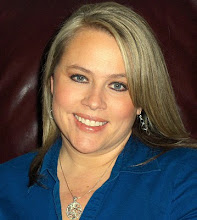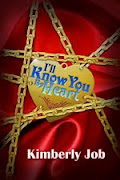
The book details the story of a family of Welsh immigrants. After settling with the Saints, Ben and Mary Ann Perkins are asked to join a mission to create a trail to Southern Utah through what would become the famous Utah landmark “Hole in the Rock”. The story tells about the great fortitude it took these pioneers to create a road and blast through obstacles day after day. Without fail, they persevered until their destination was finally reached. It shows the great faith of the early pioneers and their determination to follow the Lord, regardless of what sacrifices may be required.
My favorite character in the book was Sarah Williams, Mary Ann’s sister. Sarah went along on the expedition to help care for Ben and Mary Ann’s children. Once they reached their destination, the real trial began when Ben asked Sarah to be his second wife. It was a test of faith they were not sure they could pass. Tristi did an amazing job showing their agony as they wrestled with the difficult decision. Through Ben, Mary Ann, and Sarah’s faith, they were blessed, and throughout this well-written account their testimonies are evident. It is a story you will not soon forget.
You can order a copy of the book and learn more about the author’s other books at Tristi’s Website.
Tristi is a wonderful writer and an amazing woman. Like her characters, she has a strong faith and willing spirit. She never hesitates to share her talents and through her fun-loving, witty personality she creates a following of fans wherever she goes. I feel lucky to call her my friend and look forward to reading more of her work.
I asked Tristi some questions about her background, her new book, her interests and writing in general. I think you’ll find her answers intriguing:
When did you first consider yourself a writer?
I've wanted to be a writer my whole life. I wrote little stories the whole time I was growing up, most of them really bad, a few of them good enough that I may try to resurrect them at some point. But it wasn't until I was twenty-three that I realized, I might be able to write something good. You know how we all plague ourselves with self-doubt? Yeah. That was me. But at twenty-three, I had a dream which morphed into the plot for "Nothing to Regret," and I realized that I really could actually do this, instead of just dreaming about it. Now with the publication of "Season of Sacrifice," I feel like I'm doing what I came here to do.
Is there a message in your novel you want readers to grasp?
There isn't an overt message, as I'm basically just telling the story of what happened to the faithful pioneers who lived at that time. However, I do hope the reader comes away with a greater appreciation of the sacrifices made, the miracles that occurred, and the incredible power of the human spirit to overcome any obstacle.
How long did it take you to write Season of Sacrifice?
Eighty hours. This is the only book I've ever timed, but I know for sure that eighty hours is just not my norm. I'd say I usually take a couple of hundred hours, but "Season of Sacrifice" pretty much wrote itself.
What books or authors have most influenced your writing?
Growing up, I read a lot of Louisa May Alcott, Gene Stratton-Porter, and L.M. Montgomery, so my sentence structure tends to be a little more complex than what we're seeing now. I'm working on that -- it's a hard habit to break. More recently, I find myself influenced by Ann Rinaldi. She's really what got me excited about writing historical fiction. She writes for the national young adult audience, and her stories bring history to life. I write for adults rather than teens, but I want to accomplish what she has, in making history real to the reader.
What can we look for next? What current projects are you working on?
I have a couple of contemporary mysteries finished, and I have a Vietnam-era book about done that I'm really excited about. I also have a Civil War story on the backburner, and about twenty other ideas beyond that. My very next project will be another contemporary mystery, a sequel to one I finished a few weeks ago. After writing so much historical fiction, it's kind of strange to write a contemporary. While working on my latest book, I didn't have to research anything until I got to page 100. That was wild.
Why did you choose to self-publish?
With all of the hooha going on with Warren Jeffs and the FLDS Church, LDS publishers aren't accepting stories about polygamy. I wanted to get this story out there. My ancestors were incredible people and I wanted to share who they were with the world. I realized the best way for me to do this would be to publish it myself. My good friend BJ Rowley did everything but write the book -- cover design, typesetting, line editing, the works -- and we made it happen.
If you had to do it all over again, would you change anything in your book?
I am immensely proud of this book. I truly feel that by writing this book, I have done the thing I was supposed to do when I was given this talent. (Not that I'm quitting writing, by any means) The only things I would change are the small occasional typos that I didn't catch, and I would put a map in the front. I couldn't find one that wasn't heavily copyrighted. Beyond that, I would change nothing.
Is there anything you find particularly challenging in your writing?
I really dislike editing it for the forty-seventh time. I know it has to be done, but by the time you've read it and read it and read it, you want to scream. I'm also challenged by finding all the information I need -- it seems someone always contacts me after I've published a book and says, "Didn't you know that such and such happened?" I can research something until I'm blue in the face, but because I didn't live during that time period, I can't know everything. I'm grateful when someone points out a fact I missed, but I wish it didn't make me look like I don't know what I'm talking about. I do know what I'm talking about, when I can find the materials I need to learn about it.
I know you have four children and homeschool, so when do you find time to write?
I do the bulk of my writing in the late evening and into the night. I work from home writing media reviews for Families.com and editing for other authors, so I generally get to work around nine o'clock and stay up until around two, doing my reviews and editing, and then working on my own books. I try to sneak stuff in during the day -- I nearly always get new scenes while I'm in the shower, so I work those in, but I try to keep the bulk of my writing to the nighttime hours after my kids are down.
Do you have any advice for other authors?
Read good books, be willing to accept constructive criticism, and try your hardest to be just like me . . . Well, the first two, at least.
What do you like to do when you're not writing?
When I'm not writing, I'm usually thinking about writing. I also love to read, I enjoy good movies, I like to scrapbook although I haven't had time in a long while, and I like trying new recipes. Not that it does me any good -- it's hard to find recipes my family will eat. But I keep trying.
Any last words you want the reader to know?
Let's see . . . I'm the most awesome writer on the planet and you should buy all my books. You should probably also know that I've got a really strange sense of humor.















2 comments:
Nice interview. :) Tristi's passion for her books and sense of humor really shows through.
Love the interview. Tristi is so funny. I want to grow up to be just like her!
Post a Comment
I LOVE Comments!!